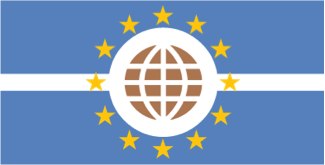
The A1 certificate is a form for the movement of persons, especially with EU and EFTA states*. With this certificate, the employee or self-employed person can prove that they are subject to the social security system of a specific EU or EFTA member state.
*EFTA states = EU states, Iceland, Liechtenstein, Norway and Switzerland
Your employee is obliged to carry the A1 certificate with them during their stay abroad. No distinction is made between secondment and business trip. A stay abroad can also last a few hours. At the same time, the competent authority of the country in which the trip takes place usually receives a copy of the A1 certificate.
Increasingly, checks are being carried out in the EU/EFTA states. Failure to carry the A1 certificate can lead to considerable consequences. In addition to fines in the five-digit range, access to company or trade fair premises may be denied or social security contributions may be confiscated immediately in accordance with the law of the country of residence.
Online: The German Visa and Consular Society (DVKG) provides an A1 application online. Once completed, only the variable information will be required in future. The DVKG will apply for the A1 certificate for you. The A1 certificate will be sent to the traveler. Next steps:
The social security agreement regulates which social security law is to be applied in the event of a posting / business trip. Such agreements are of practical relevance in the event of unforeseeable events such as illness and accident. The agreement regulates in particular the care of the posted worker / business traveler in the event of illness or following an accident at work.
The applicable social security law is verified with the social security certificate (certificate A 1 (E101))The following list provides an overview of the countries with which the Federal Republic of Germany has concluded social security agreements and specifies the periods during which German legislation continues to apply to the foreign assignment of employees:
There is no maximum time limit for posting to countries with which there is no social security agreement. If the requirements for a posting are met, German social security law also applies in these countries during the period of employment. A test is carried out via the determination of the posting in the sense of broadcasting.
If the requirements for a posting are not met, employees are not subject to German legislation during their assignment abroad. Any previous social security obligation then ends when the foreign assignment begins.When applying for an A1 certificate, an EU notification obligation may be required. The legal framework for registration depends on the destination. Specialist areas such as social security and tax law must be taken into account.
For the implementation of the EU notification, please contact the consular advisors of the DVKG. For further legal advice, we recommend secondment consultants with legal expertise, tax consultants and auditors. We will be happy to put you in contact with our relevant partner.
